Politicon.co
EU-Israel Energy Cooperation Renewed: Peace Processes, Association Council, and East-Med Trade
After a decade of standstill, the EU and Israel are to revive ties amidst the Russia-Ukraine conflict. During Benjamin Netanyahu’s tenure as PM, Tel Aviv and Brussels were increasingly bitter cold to each other, exaggerated by Netanyahu’s actions in the conflict with the Palestinian territories. At that point, the EU-Israel Association Agreement of 1995 was canceled in 2013, based upon Brussel’s decision to “differentiate between settlements and the rest of Israel”. As of now, EU foreign ministers have decided to renew the Association Council, which was the advisory body of the former Agreement. These “warming” decisions are bolstered by EU President von der Leyen’s recent meeting with PM Lapid, the first executive meeting between the two heads of state in a decade. Since the EU’s economy and natural resource market declined as a consequence of their anti-Russia sanctions, the Union seeks to find more hospitable markets, namely the Middle East. As such, the EU’s renewed friendship with Israel is not an isolated strategy, but a move to solidify an Eastern Mediterranean trade bloc that could suffice their energy needs.
The bilateral meetings ahead will be a turning point, not just for energy cooperation, but for the domestic politics of Israel. Certainly, the focus is the trade of gas from Israel to EU states, but these renewed relations are also predicated on solving Israel’s decade-long conflict with the Palestinian territories. While these agreements are being processed, Israeli media has begun to label the Lapid government the “most pro-European government that has existed… since 2009”. Furthermore, many have seen Lapid’s foreign policy management in a “sweet spot”: keeping the US a top security partner, while the EU becomes its “main economic and commercial partner”. However, as Israel finds economic resonance with the EU, their positions on the Israel-Palestine conflict are coming closer to alignment. Lapid is Israel’s first PM to outwardly “support the two-state solution” and is therefore a tacit partner the EU can believe in. If the newly restored Association Council convenes its first meeting, it will certainly call for a two-state solution and admonish Israel’s conduct in the territories as of late. If Lapid’s government remains open to dialogue, the Association Council will hopefully be a body to break through the years of compromise and confrontation.
Keeping with the peacemaking, the EU is steadfast in normalizing Israel’s position in the Middle East and is thus pushing for “triangulation” in the region. The Union welcomes the Abraham Accords, inviting more cooperation between Israel, the EU, and Arab countries with whom Israel has formal relations. The most recent Western power to push for this triangular economic cooperation is the U.S., as seen by Biden’s lackluster Middle East trip to Israel and Saudi Arabia. Following their prerogative, the EU is set on stimulating as much dialogue between Israel and the Middle East as possible before Israel’s elections start in November. For that reason, Israeli analysts and foreign ministers suggest the meeting be convened in October, even while current PM Lapid is running his campaign.
The urgency of the meeting is based upon political framing: highlighting Lapid’s foreign policy wins amidst an election cycle will entice voters to pursue his party, instead of party candidates representing an “authoritarian” or “security-driven” Israel. Once Lapid rose to PM after a failed government, much of Israeli society viewed him as an “interim” before a fresh Netanyahu regime, but his swift yet calculated policies portray him as a more longlisting solution. Albeit, Operation Breaking Dawn, the fear of Islamic Jihad and terrorist attacks in Israel can surely return Israeli to self-isolation and militarism. Now especially, Israeli media cite “falsification and resentment” towards the Israeli government in addition to possible “double standards” as the UN reviews the IDF’s operation against Islamic Jihad in Gaza. Recent reports of anti-Semitic comments made by the UN Commission leadership are also inflaming the issue. Therefore, the EU leadership will have to choose their next stratagem: turn a blind eye to Israel’s reputation for better economic relations or criticize Israel’s actions but lose favor with its people.
Nevertheless, the EU is pursuing an alternative natural resource market to combat Russia’s power: Eastern Mediterranean states such as Israel and Egypt are now a priority. Last month, the EU, Egypt, and Israel signed their flagship “Memorandum of Understanding” which agreed to transport natural gas from Israel to Europe via Egypt. Of course, the shared “understanding” is to safeguard energy security in the West while the Middle East profits off the current conflict. However, this is not just a short-term lucrative opportunity, but the start of an East-Med powerhouse. The annual Eastern Mediterranean Gas Forum has been maturing since 2019, so the Russo-Ukrainian war provides an excellent opportunity to put its plans of investing in sustainable technology, trade routes, and regional connectivity in full force. The EU’s emerging energy diplomacy, unfortunately, gives other East-Med trade initiatives less appeal, such as the EastMed-Poseidon project flowing through contested exclusive economic zones claimed by Greece, Cyprus and Turkey. From the Abraham Accords to the European Union’s East-Med demarche, essentially any ME state willing to cooperate with Israel is proving to be the economic victor amidst the new East-West rift.
Contrary to analysts who describe these times as “unprecedented”, the mixture of diplomacy and trade agreements made with Israel is akin to a mid-1990s world. Just as in 1995, 2022 is proving to be a geopolitical high point for Israel: better relations with the Arab world, increased economic relations with the EU, and a refreshing dialogue to discuss the Palestinian question. Whereas the 1990s was the beginning of an integrated world, beyond “East” and “West”, the post-2022 world looks far more divided. Furthermore, in domestic politics in the 1990s Israel saw more common ground, but the current state of polarized politics is unsustainable. The ever-widening gap between left-wing secularism and right-wing religiosity is a domestic issue that will ultimately affect the propensity of Lapid’s EU-ME initiatives. It is too early to call him a new Rabin, as some journalists suggest, but his game-changing policies and effort toward dialogue are a healthy step forward. The consistent threat of terrorism in and around Israel may push society to the right, but the economic successes these EU-Eastern Mediterranean deals bring will hopefully inoculate the masses.
![]()
- REGIONS :
- Middle East and North Africa
- Western Europe


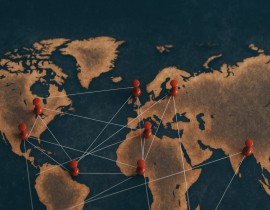
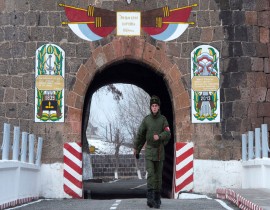
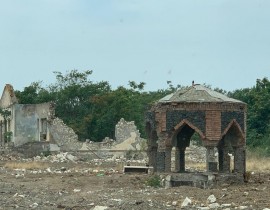
png-1748065971.png)
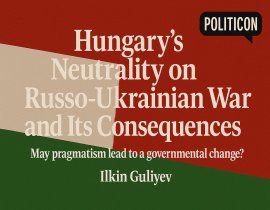

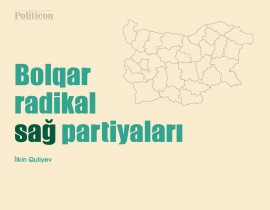
jpg-1599133320.jpg)

